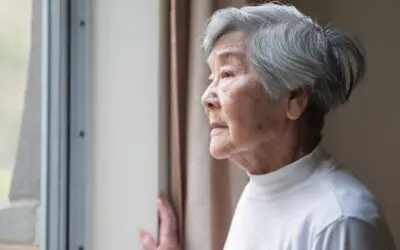Our Blogs
Our Blogs
How to Help Seniors Manage Anxiety and Depression
Aging brings wisdom, resilience, and reflection—but it can also present emotional challenges. Seniors may face anxiety and depression due to factors like declining health, loss of loved ones, social isolation, or dramatic life changes such as retirement. Often overlooked, these mental health issues can quietly undermine a senior’s quality of life. But with the right support, understanding, and resources, managing anxiety and depression in older adults is both possible and effective.
Packing for Comfort: What Seniors Should Bring on Summer Trips
Summer travel is a cherished tradition for many older adults, offering an opportunity to relax, reconnect with family, and discover new destinations. However, comfort becomes increasingly important with age, especially when navigating the unique demands of travel. Whether it’s a weekend getaway, a road trip, or a long-awaited vacation abroad, seniors benefit from thoughtful packing that prioritizes ease, health, and enjoyment.
Understanding Cognitive Decline: Early Warning Signs and How to Stay Ahead
Cognitive decline is a gradual loss of mental function that affects memory, thinking, reasoning, and behavior. While some cognitive slowing is expected with age, significant decline is not normal for aging. Detecting early signs and adopting preventative strategies can make a crucial difference in maintaining mental sharpness and overall quality of life.
What Are the Most Common Disabilities In Seniors?
There is no denying that seniors face many challenges with regard to their physical and cognitive abilities as they age. Common disabilities for seniors include vision impairment, hearing loss, mobility issues, memory problems, arthritis, depression, and anxiety. As these issues can often interfere with everyday activities such as driving or participating in social activities, it is important for seniors to recognize the signs of these common disabilities and seek out the help they need.
Helping Seniors Thrive: A Guide to Meeting Their Physical, Social, and Emotional Needs
As people age, their needs begin to change. With the elderly population growing at a faster rate than ever before, it is important to understand not only the physical and mental health needs of seniors but also the essential ones that must be met for them to live happy and healthy lives. This blog post will provide a look into what those essential needs are and how they can be met.
Strategies for Mitigating Depression and Anxiety in Seniors Experiencing Cognitive Decline
For many seniors, navigating the murky waters of cognitive decline can feel like trying to cross a maze in the dark. It’s a journey that often brings uninvited guests – depression and anxiety – along for the ride. This unwelcome tag-along can make the path even more treacherous, creating a vicious circle that’s hard to break. But not to worry, there are effective strategies we can employ to help our loved ones mitigate these feelings and improve their overall quality of life. Let’s dive into how we can offer a helping hand and lighten the load for those with cognitive decline.
From Independent Living to Memory Care: Understanding the Continuum of Care
As people age, their care needs evolve. Understanding the range of senior living options for older adults and their families can help ensure the best possible quality of life. The continuum of care includes independent living, assisted living, skilled nursing, and memory care, each providing different levels of support. Choosing the right environment can make all the difference if an individual is still active or requires specialized assistance.
What to Expect from Life in an Independent Living Facility
Transitioning to an independent living community is a significant milestone. These communities offer older adults a lifestyle that balances autonomy with the convenience of support services. They are designed for active seniors who want to maintain their independence while enjoying social engagement, recreational activities, and a maintenance-free living environment. If you are considering moving to an independent living community, here’s what you can expect.
The Differences Between Short-Term and Long-Term Care
As individuals age or experience changes in health status, the need for care becomes an important consideration. Two primary types of support emerge in these scenarios—short-term care and long-term care. While both provide essential assistance, their purpose, duration, scope, and cost differ significantly. Understanding these differences is critical for individuals and families preparing to make informed decisions about health care planning, recovery, and quality of life.









